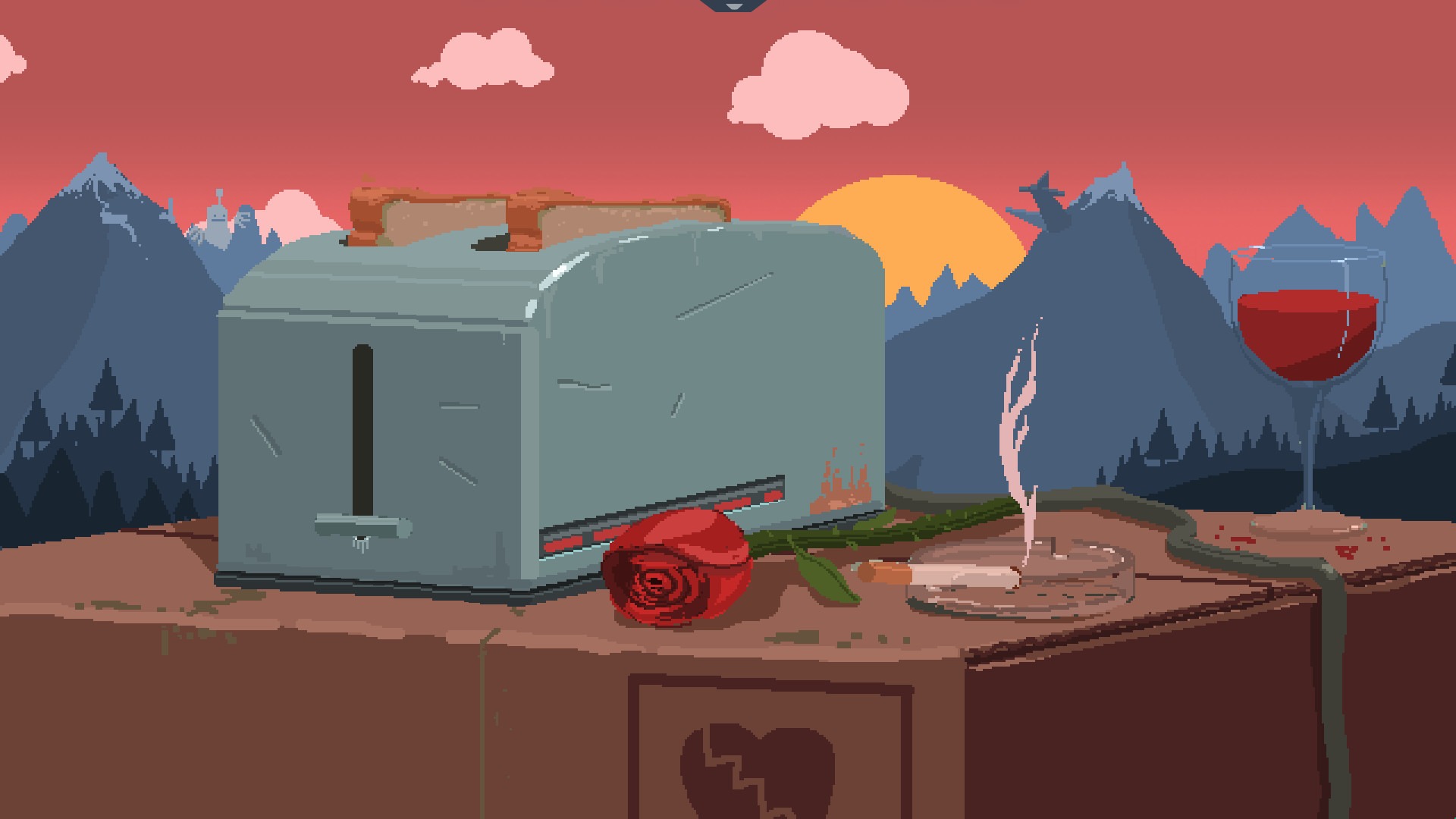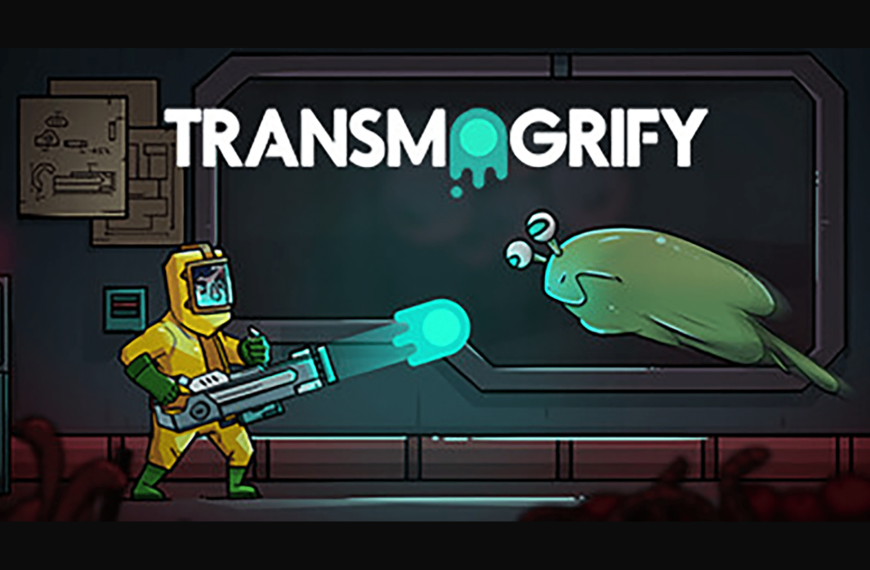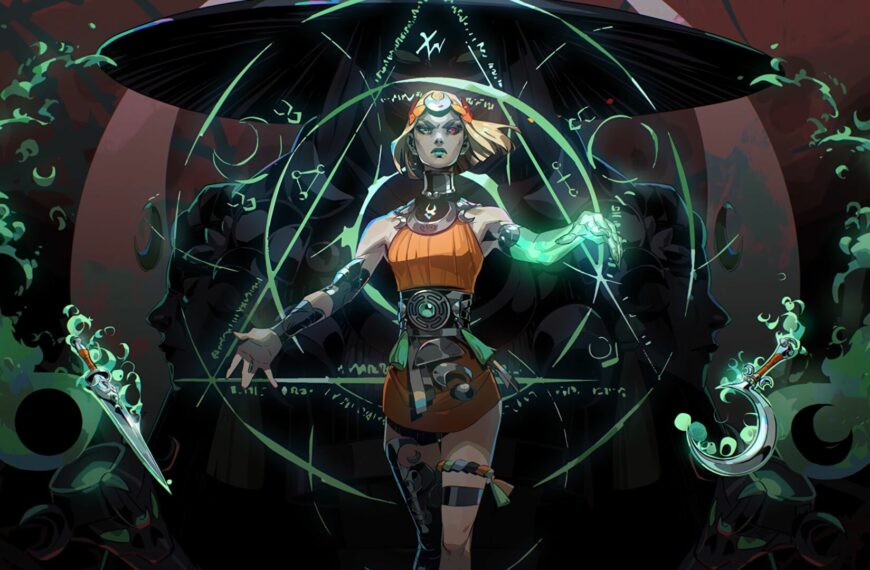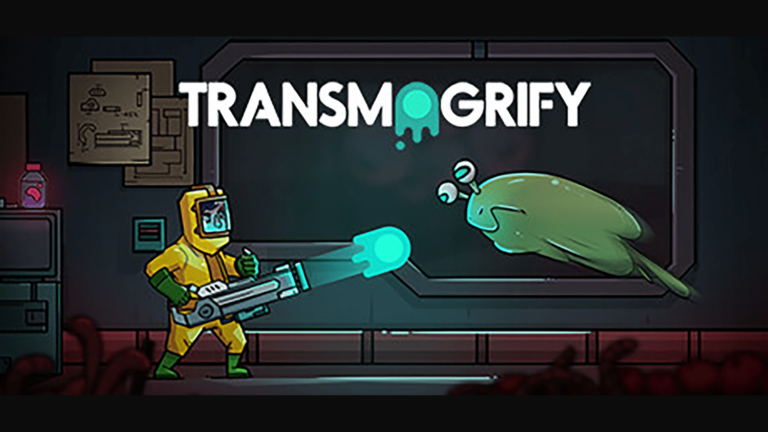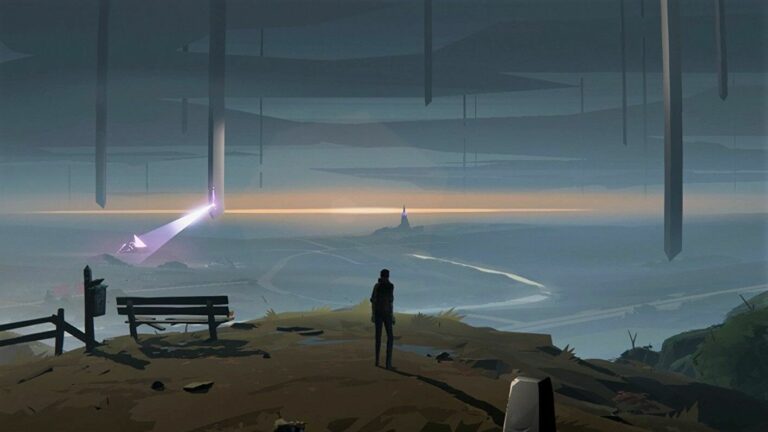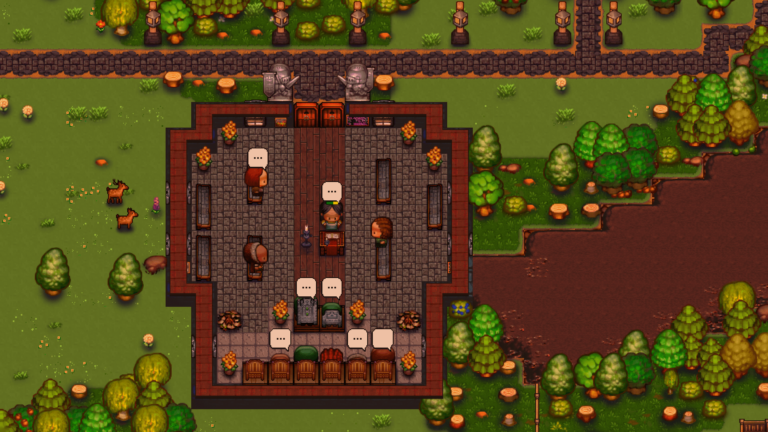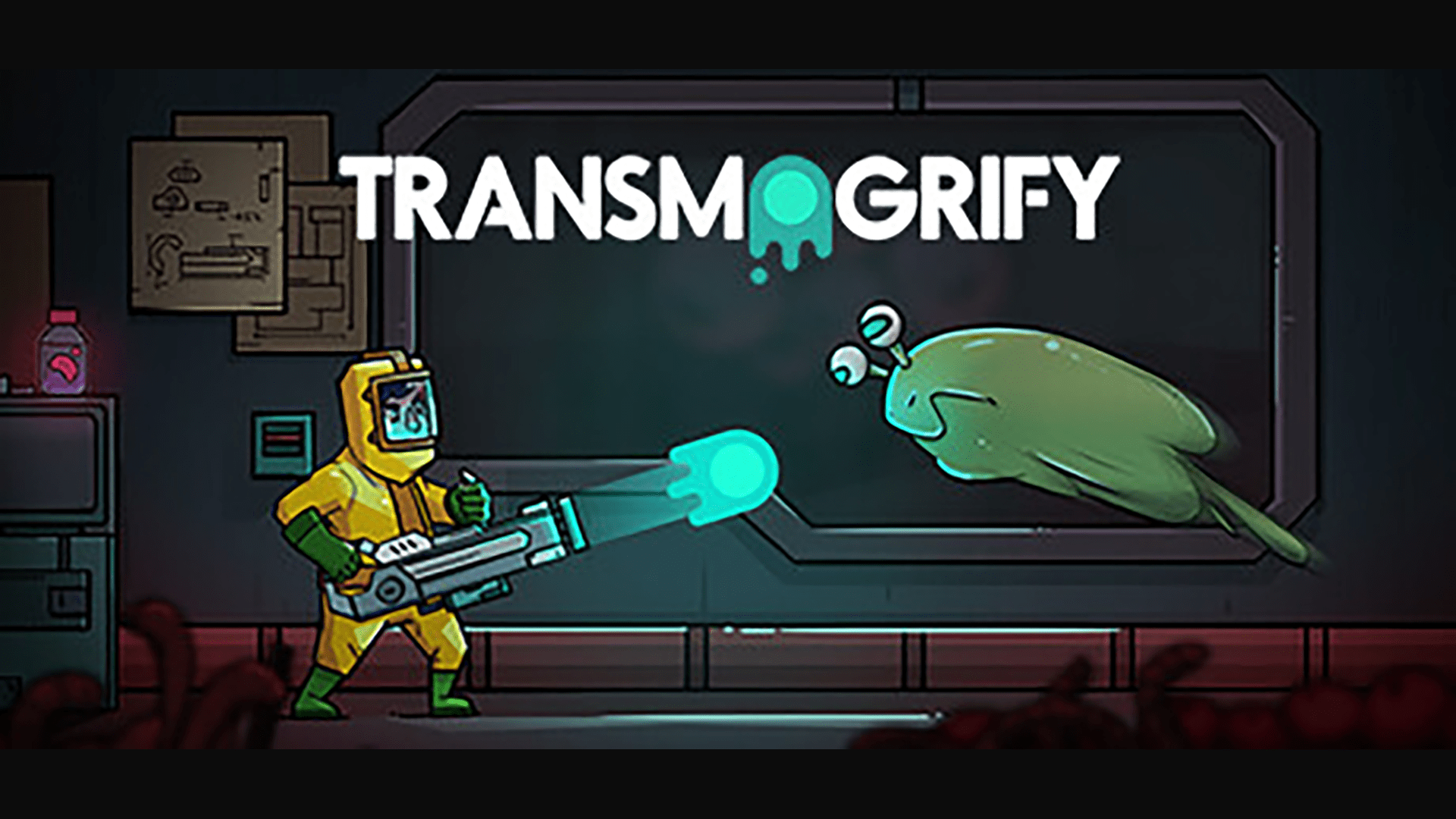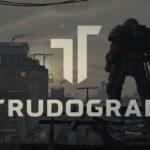Released in April 2017, Paradigm is a surreal point and click adventure game with a striking art style set in the fictional country of Krusz. In a dystopian future, where the wealthy can buy prodigy children to pass on their riches to, Paradigm is a prodigy child gone wrong. His mutation means he is sent to live in a deserted town and forced to make his own way in life, setting the stage for the Jacob Janerka to stuff it full of absurdities, innovative minigames, and chuckle-worthy dialogue.
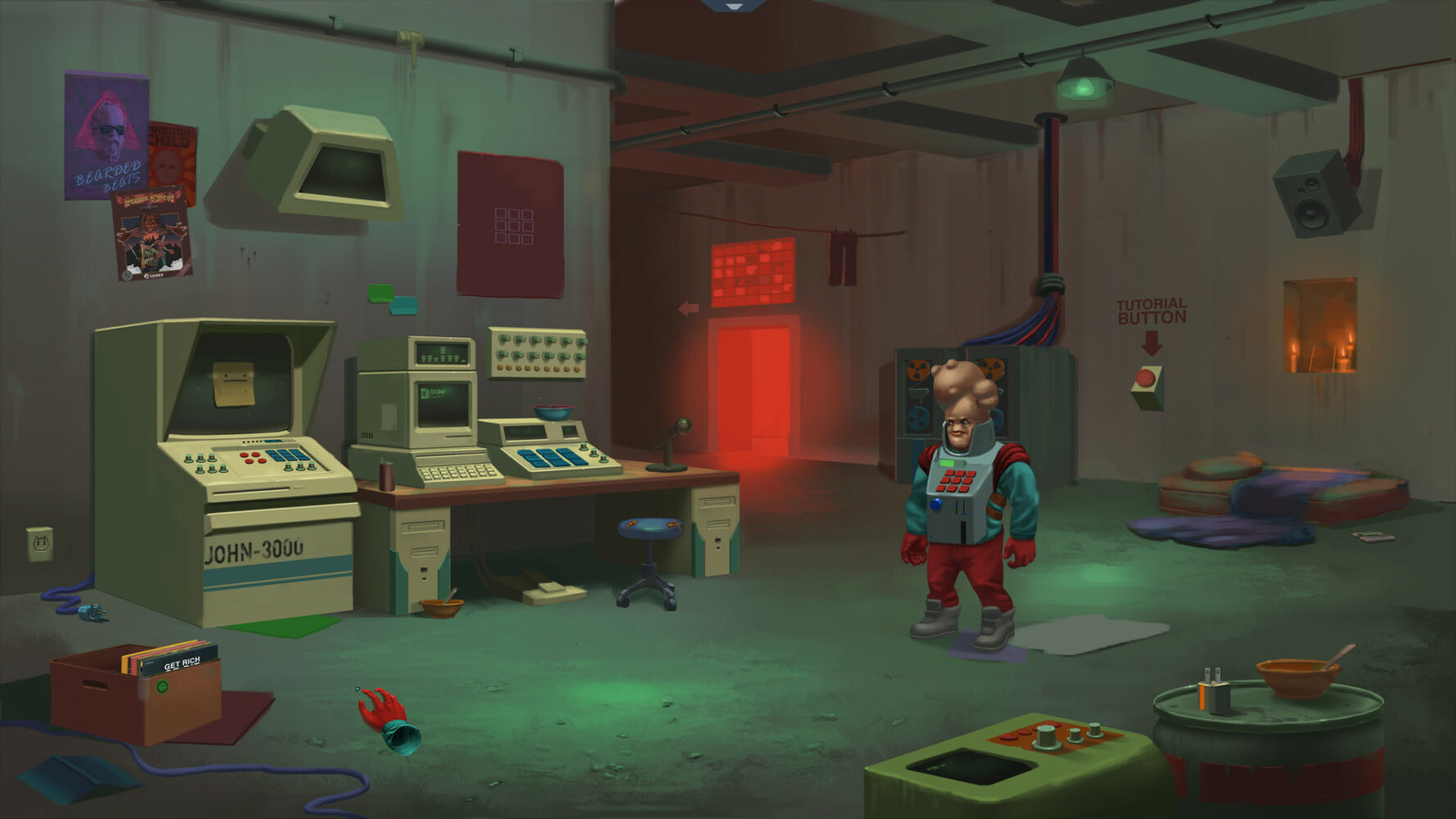
The story in Paradigm isn’t always as clear as it could be, but perhaps for a surrealist game that’s to be expected. The motivation of Paradigm is clear, but the sense of danger and urgency that forces you to begin exploring the world in order to survive quickly fizzes away and it decelerates to a slow burn at times. It’s all too easy to lose yourself speaking to all the characters and trying to interact with items to the point that the plot takes a backseat. If you’re looking for something punchier and faster paced then this might not be your cup of tea – but if you’re interested in trying something soporifically abstract then come on in, the water’s fine.
The animated art style is very distinctive and offers a fresh take on dystopian art, which is often very monochromatic and bleak. Although Paradigm does have a somewhat bright colour palette, it’s got this washed over tone to it, that maintains its genre. There are moments in the game where, for comedic timing, the perspective of the camera zooms in to a close-up shot of a character’s face, usually Paradigm’s, and you can see all these extra details of the face, which, when put alongside the expression the character is pulling, of course just adds to the hilarity of the world. It’s the small details like this that bring this game together.
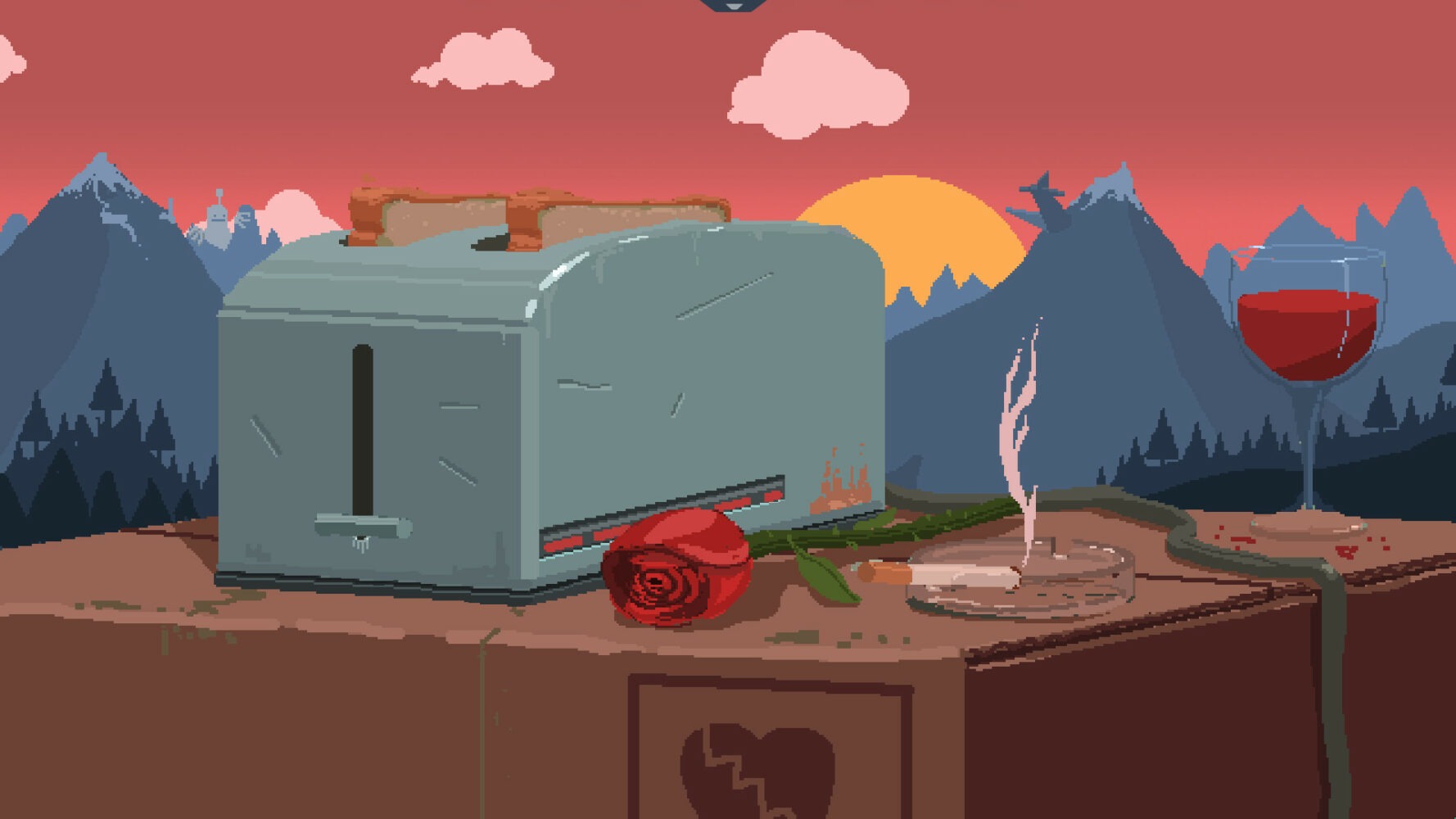
Also Read
Transmogrify PC Review: The Best Way To Defeat An Enemy
Transmogrify is a game with a strong central idea let down by a shoddy execution resulting in an experience that is…
Defy the Gods as a Witchy Moon Goddess in Hades 2
Supergiant announces Hades 2 for 2023 at the 2022 Game Awards. The sequel promises dark sorcery, witchery, and more frenetic roguelike…
The humour, although perhaps not constant, is lowbrow of the highest calibre. Instant classics such as the ‘Butt Observatory’, that is in fact shaped like a butt, make a lasting impression or the fact that DUPA, the big company that runs everything, translates to ‘butt’ in many different eastern-European languages. But it’s not all butt jokes, (pun intended), humour is etched into the visual language of the world as well as the music and characterisation. Everything all forms a series of carefully constructed, weird and wacky punchlines. The game has dialogue choices where you can try clicking all the possible responses to progress the game, but even if you know which one is the “right” one, the witty writing will make you want to try them all out just to see what happens.
Of all aspects of the game, it’s the characters that bring Paradigm together. First and foremost is Paradigm himself, the protagonist. He has this infectious attitude where he will happily go along with every character’s quirk, or whatever it is that they need to say or do, which encourages the player to take everything that’s happening onboard.
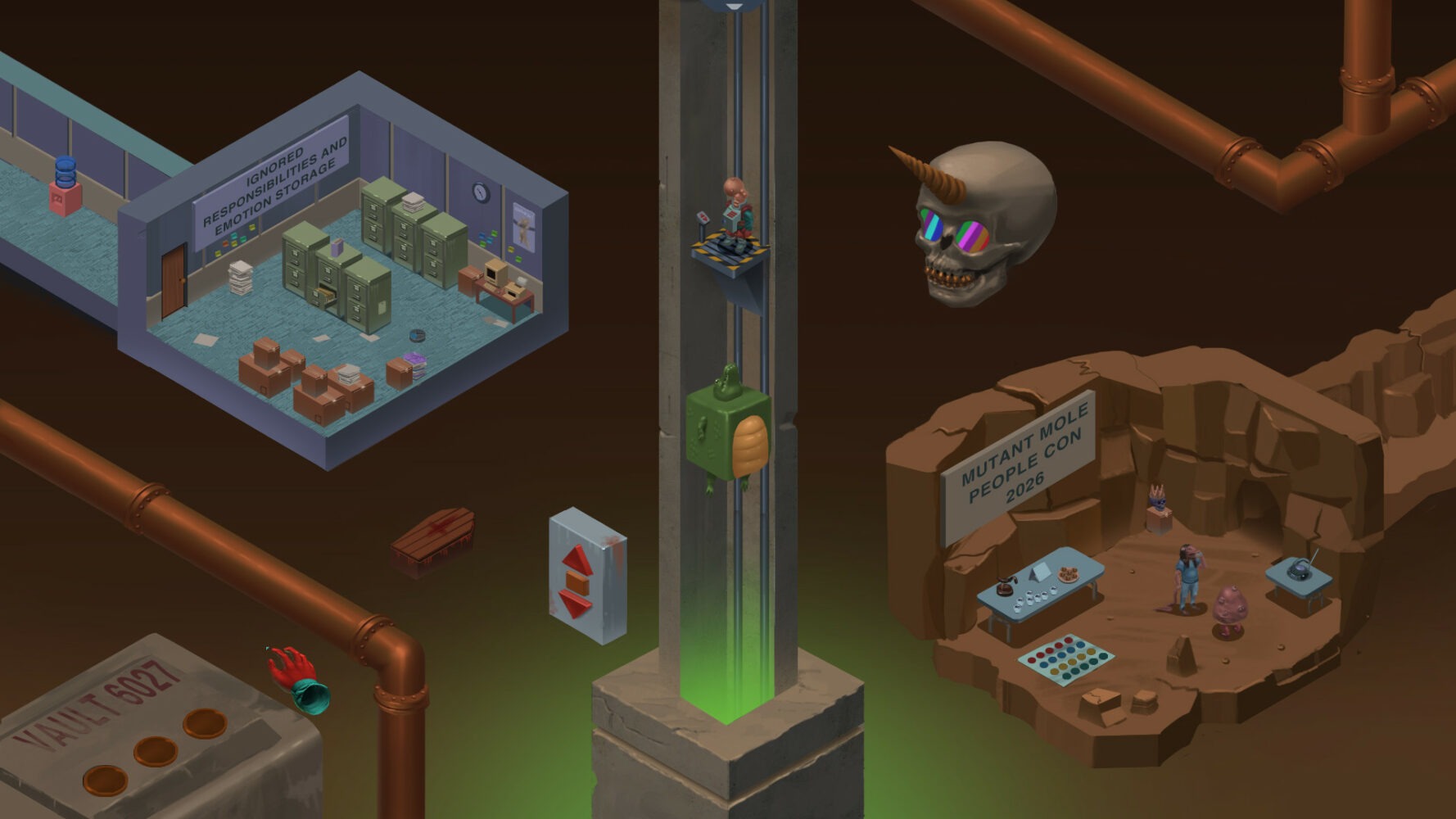
The list of characters is offbeat and fun, including (but not limited to) beatboxing aubergine, the totally “not a drug dealer” guy, and even a sentient water-cooler. You’re “guided” by John 3000, an Aussie digital AI character, who more often than not gives less-than-helpful advice but does provide a fun narration to your journey. All the characters are voice-acted which offers an interesting way of playing an indie game, where the dialogue is more than often text. The voice acting is well acted for the tone of the game, with a great balance between humour and realism. In fact, the protagonist is voice acted by Jacob Janerka himself, the writer and creator of the game.
The gameplay involves lots of puzzles, the content of which spans from your regular ‘find this item for this character’ to ‘turn this toaster on’, in both senses of the word. Yes, seriously, it’s a thing you have to do. There are a number of segments in the game where the gameplay genre changes, for example Paradigm has to play a fighter game, which for the player, switches things up into a fighter strategy game as well. This concept of switching gameplay style can be hit and miss, sometimes livening up a gameplay segment with a new challenge whilst other times it just removes you from the story and creates disconnect. Paradigm is one of the examples where it works. Because the game is already so effectively established as surreal and unpredictable, Janerka could throw anything at you, and the only valid response would be; bring it on.
It may be disorientating, but frankly, so is every other second of the game! There’s a moment where Paradigm gets thrown into the multiverse, transforming his character model into the style of a children’s cartoon before morphing again and appearing as though he’s made from clay. Kudos to Janerka for going all out and injecting the madcap unpredictability of Paradigm’s core concept into the gameplay systems and visual design so creatively. With so many big budget games and franchises cutting and pasting familiar gameplay elements underneath different coloured box art, its great to see the indie scene doing what it does best and showing that an idea can be systemically as well as aesthetically expressed.
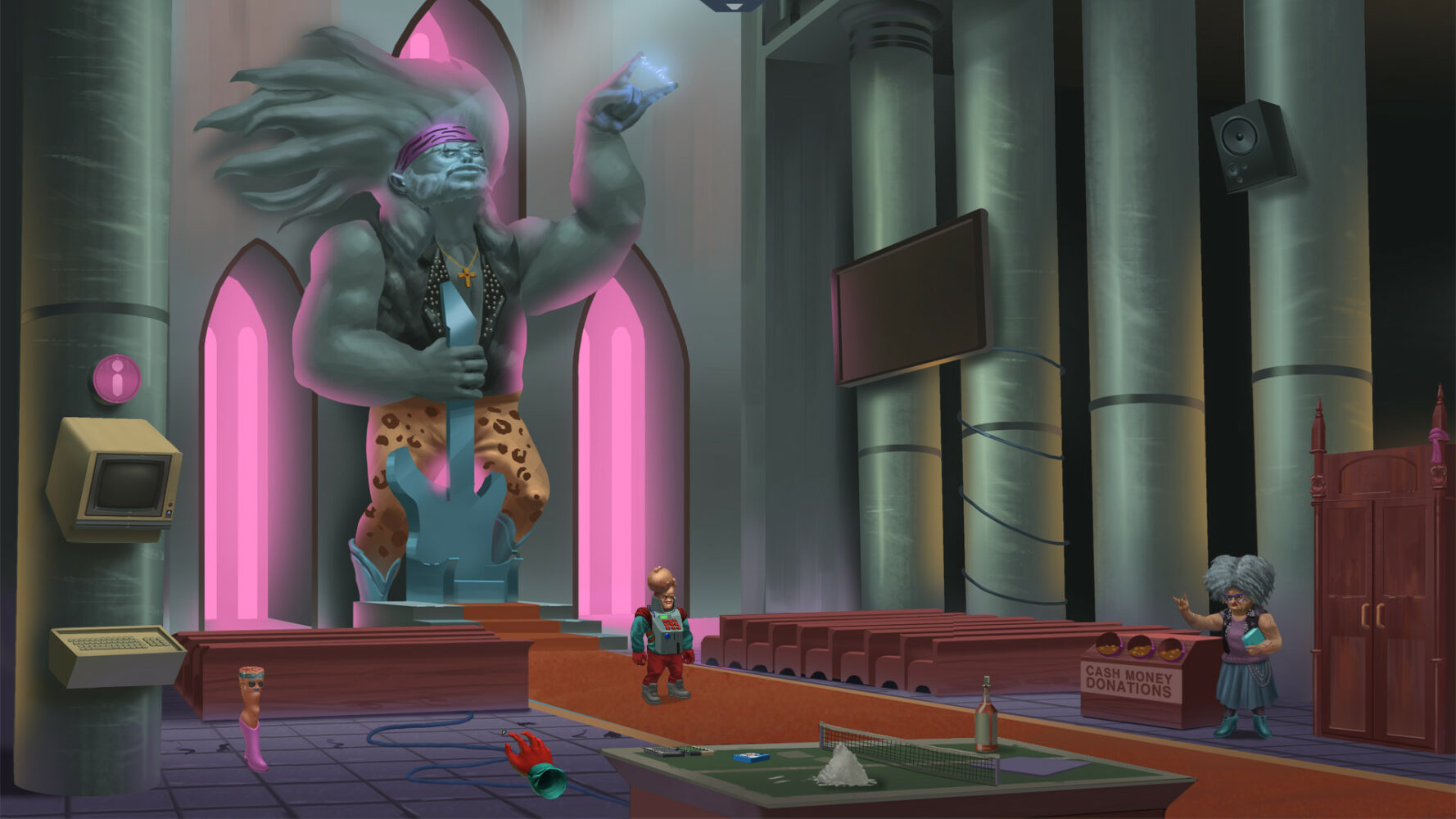
Despite being a post-apocalyptic game, Paradigm manages to avoid the pitfalls of video game genre tropes, and offers a refreshing take on the usually grim dystopian settings you find in post-apocalyptic titles. Every aspect of the game comes to life in the quirkiest and most hilarious of ways and what it’s lacking in quality, it makes up for by being so out there that it’s hands down refreshing. Janerka knocked this one out the park, combining every aspect of the weird and the wonderful he could into one small, but impactful game. Paradigm himself has this attitude and approach to life that creates a recognisably relatable character in a seemingly unrecognisable world.

